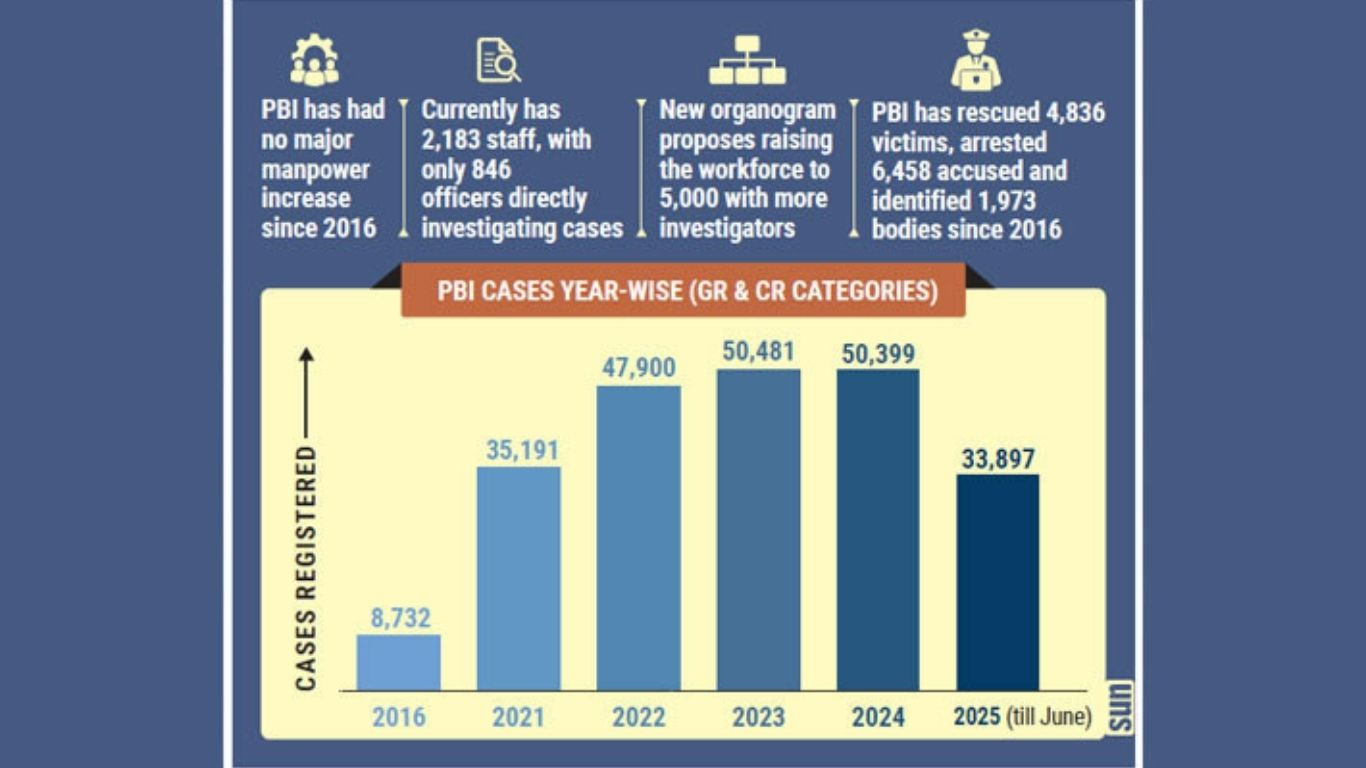
The Police Bureau of Investigation (PBI) is grappling with a mounting caseload without a corresponding rise in manpower, prompting its leadership to draw up a new organogram seeking a near-doubling of staff.
Complainants across Bangladesh are increasingly requesting that their cases be transferred to the PBI, which was modelled on the US Federal Bureau of Investigation and began operating in September 2012. But while its remit has expanded sharply over the past decade, the number of investigators has remained largely static since 2016.
In Shariatpur, for example, Halim Madbar from Purba Naodoba in Zajira filed a murder case in 2022 over the death of his younger sister, Jobeda Begum, at her son-in-law’s house. Despite repeated petitions to the police headquarters and the then PBI chief, Halim failed to have the case transferred to the agency.
Local police and the Detective Branch (DB) submitted charge sheets treating the death as accidental, despite it occurring in broad daylight.
“The murder must be proved murder if the PBI would investigate,” Halim told the Daily Sun, expressing his frustration.
Senior officials at police headquarters confirmed they regularly receive applications from complainants seeking PBI involvement, a view echoed by several Dhaka lawyers who said petitions to shift cases from police stations, the DB and even the Criminal Investigation Department (CID) to the PBI are becoming routine.
The agency received its own regulations on 5 January 2016, allowing it to begin investigations in earnest. But while its caseload has ballooned, its staff strength has not.
According to PBI headquarters, the agency currently has 2,183 personnel from its chief down to constables, including: one additional inspector general, one deputy inspector general (DIG), 11 additional DIGs, 37 superintendents of police (SPs), 20 additional SPs, three assistant superintendents of police (ASPs), 321 unarmed inspectors, three armed inspectors, 525 unarmed sub-inspectors (SIs), 148 PSIs, five armed SIs, six sergeants, 346 unarmed assistant sub-inspectors (ASIs), nine armed ASIs, 29 nayeks, and 719 constables.
Of these, 846 unarmed inspectors and sub-inspectors – 321 inspectors and 525 SIs – carry out most investigations, while senior officers focus mainly on supervision.
A PBI SP at headquarters, speaking on condition of anonymity, said that apart from a handful of cadre officer posts, no new positions had been approved since 2016 despite a sharp rise in cases.
The statistics bear this out: the number of cases in GR and CR categories handled by the PBI jumped from 8,732 in 2016 to 16,110 in 2017, 21,676 in 2018, 25,288 in 2019, 22,522 in 2020, 35,191 in 2021, 47,900 in 2022, 50,481 in 2023, 50,399 in 2024 and 33,897 up to June 2025.
PBI chief Mostafa Kamal, also an additional inspector general of police, told the Daily Sun, “Earlier we placed a proposal to the ministry concerned for a manpower hike, which did not work. Now, we are making an organogram anew with a proposal to hike the manpower to 5,000. In the new proposal, the increase of number of investigators has been emphasised.”
He added that the plan would be submitted to the relevant authorities soon.
Despite being overstretched, the agency has recorded significant achievements.
PBI figures show that from 2016 to June this year it rescued 4,836 victims from criminals and arrested 6,458 accused. Its labs tested 9,575 pieces of evidence over the same period. Since 2019, 1,973 bodies have been identified through fingerprint identification and verification systems.


